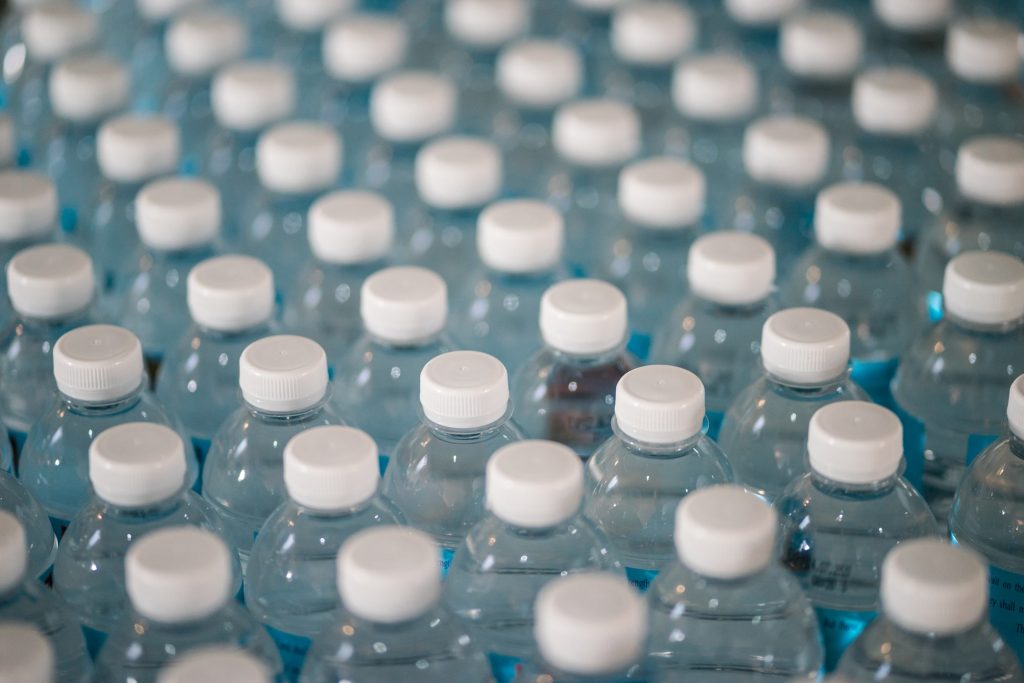
In the last 50 years, the world’s plastic production has doubled and is rising. This fact, and the pollution that is inevitably attached to that production, is harming our world at rapid rates. According to National Geographic, 91 percent of plastic isn’t recycled and, by 2050, there will be 12 tons of plastic in landfills.
Of the “reduce, reuse, recycle” saying that has been ingrained in all of our heads, recycling seems to have been stressed the most. While recycling is good and a step in the right direction, alone it is not enough. To truly make a difference, reducing our plastic usage is essential. Here are 10 ways to reduce your single-use plastic usage – all of which are accessible to college students.
10: Take tupperware with you to restaurants
Take-out is great. With the abundant portion sizes in the United States, it’s convenient to take leftovers from the restaurant home to eat later. However, most take-out containers are made of plastic, and constant one-time uses of those containers add up to a lot of personal waste. To remedy this, take a reusable
9: Use reusable shopping bags
Around 100 million plastic bags are used every minute and not for very long either. Think about your shopping trips. How long did you actually use the plastic bag? They are not worth the waste they create. Instead, buy fabric tote bags on your shopping trips to prevent wasting the plastic. An added bonus: reusable bags are way stronger than plastic ones, so you’re less likely to have a bag break while transporting your goods from the store.
8: Get a reusable straw
Straws are everywhere, and even worse, many aren’t recyclable. At William Jewell College, students drink so many beverages from the campus coffee shops that straws have become a large source of waste on campus. Buying a pack of reusable straws fixes that issue. They are convenient to carry around – so you can always have one ready for your next iced latte.
7: Stop using disposable food storage
Plastic baggies and other disposable food storage create lots of waste – especially for those who regularly pack their lunch. A simple solution is to buy reusable food storage, like a bag made from beeswax or fabric. Bonus: the reusable bags will be cheaper in the long run, as you wouldn’t have to continually purchase single use items.
6: Go for cardboard instead of plastic
In situations where a product with disposable packaging is the only accessible option, reach for cardboard instead of plastic. Cardboard is easier to recycle and doesn’t take as long to decompose.
5: Stop using disposable silverware
Likely sitting alongside your take-out container is a set of disposable silverware. Not only are these wasteful, they’re unnecessary – you’re probably just going to eat your to-go food at home where your real silverware is. At Jewell, students often use disposable silverware when getting a box at the cafeteria or food from one of the coffeeshops. To reduce this waste, all you have to do is refuse the disposable silverware from restaurants and use your real set at home. Or, if you’re on the go and aren’t eating at home, prepare and bring a utensil with you. It is especially easy to stop using disposable utensils from the cafeteria: just take real silverware and return it with your box.
4: Purchase things secondhand
Not only are thrifting and secondhand shopping fun,
Don’t forget your reusable bags when you go on these secondhand shopping excursions!
3: Bar soap
Plastic is everywhere, even in our showers. Plastic soap bottles are wasteful and inconvenient – don’t get me started on how annoying it is trying to get that last bit of soap out of the bottle. For these problems, bar soap is a lifesaver and is available for all your bathroom needs: shampoo, conditioner, body wash, face wash and hand soap.
Depending on brand, soap bars for hair can last up to 80 washes – the equivalent of 2-3 bottles of their plastic-shrouded counterparts. So, not only are you helping prevent plastic waste, you’re also saving your budget and getting the most out of your product.
2: Bring your own thermos/water bottle
Almost every Jewell student gets a daily drink from @thebeak or The Perch. We know the drill: you’re tired and you need a pick-me-up, or two or three. All of those drinks add up to a massive amount of waste, even when recycled. To fix this, bring a reusable bottle or thermos to wherever you purchase drinks – some coffee shops, like Starbucks, even give a discount when you bring in a reusable tumbler. This solution – if you purchase drinks like some people I know – can potentially save up to five cups from being wasted every day.
1: Take care of what you already have
Perhaps the most important way to reduce plastic waste is to take care of what you already have. When you take care of what you own, you throw away and purchase less. This conserves waste in so many ways – most notably by keeping things from landfills as well as saving plastic from production and packaging.
Using these tips, in addition to limiting plastic use in every possible area of life, can make a huge difference – even when done by one individual. Limit the waste you create and help better our planet.
